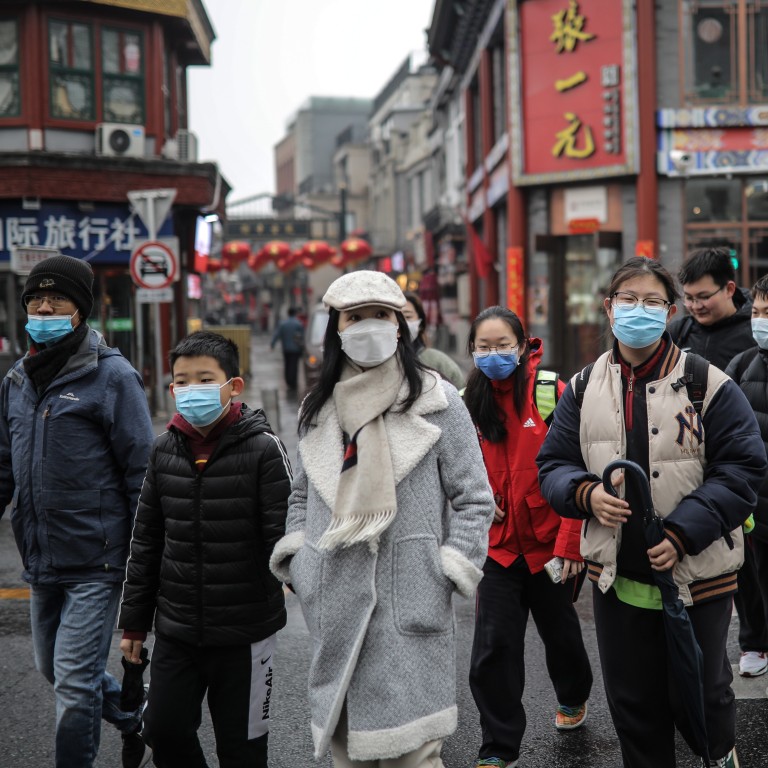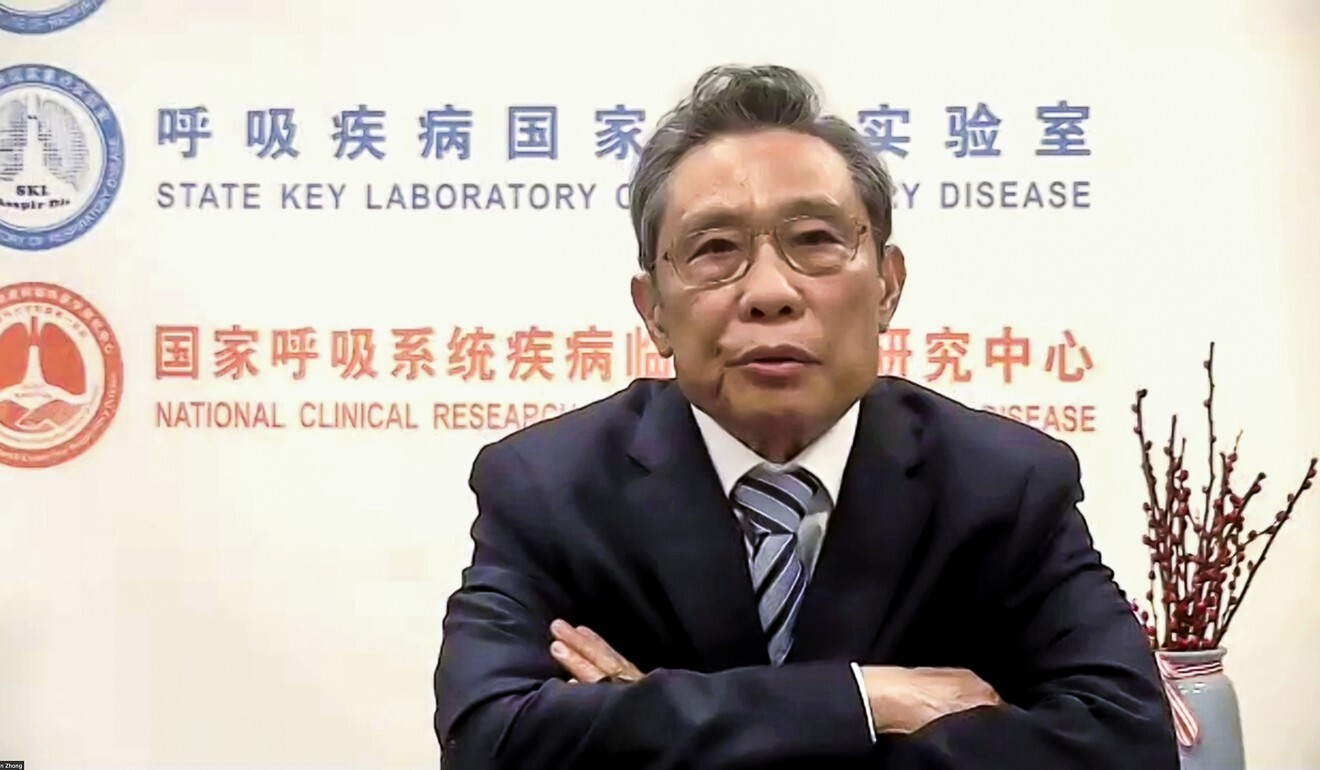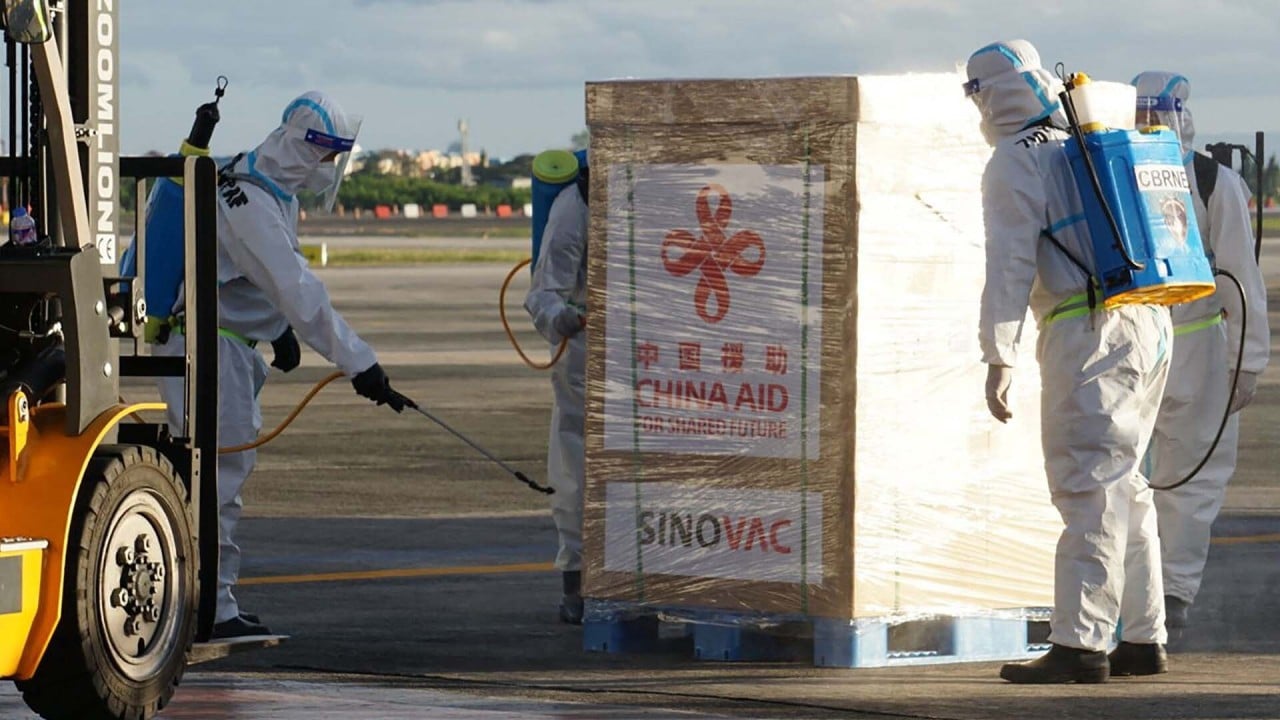
Covid-19: China will have enough vaccine doses – convincing the public is the issue, experts say
- With the pandemic largely under control, they say hesitancy is a challenge and misinformation about safety is a factor
- So far, just 3.56 per cent of the population has been immunised and authorities want to speed up the roll-out to hit 40 per cent target by July
Early this week, top respiratory disease expert Zhong Nanshan said China had only vaccinated 3.56 per cent of its population of 1.4 billion by February. He said the government now wanted to speed up the programme to meet the July target of 40 per cent – or more than 500 million people.
Tao Lina, a vaccine expert and former immunologist at the Shanghai Centre for Disease Control and Prevention, said the 40 per cent target was achievable since drug makers in China could raise their combined output to 4 billion doses a year if needed.
“If we give priority to boosting domestic inoculation we will have enough vaccine doses,” Tao said.

Sinovac spokesman Liu Peicheng on Wednesday confirmed the plan to expand production but said vaccine hesitancy was an obstacle and it would require broader efforts to overcome.
“This is not anything that an individual company can do,” Liu said. “[We] need to learn from the experience of foreign countries in getting more people willing to be vaccinated,” he said, adding that it should be “a national undertaking”.
WHO says coronavirus pandemic unlikely to end this year, as Covax details vaccine roll-out
Yanzhong Huang, a senior fellow for global health at the Council on Foreign Relations in New York, agreed that more efforts were needed to convince the public.
“The lack of interest in getting vaccinated … will continue to hinder China’s efforts to achieve herd immunity, and thus far we haven’t seen the government taking any active steps to address this issue,” Huang said.
Tao believed misinformation was a factor.
“A lot of people have been influenced by misinformation about vaccines in terms of safety and even some doctors have exaggerated the risks and possible side effects. These concerns are seen in the widespread discussions on social media,” Tao said. “But actually the adverse effects [of the vaccines] haven’t been serious and in many cases they’re just coincidental.”

03:05
China-made coronavirus vaccines widely distributed despite efficacy concerns
Local health authorities are being urged to push forward their vaccination programmes. In Hubei, a county-level official who declined to be named said they were told on Wednesday to get “everyone” vaccinated by July. The county set an earlier target of immunising more than 20,000 people by Lunar New Year in February – so far only about 4,000 have had the jab.
“It will be difficult because many people don’t want to get vaccinated – they don’t think it’s safe,” the official said, adding that the government would “find a solution” to achieve its mass vaccination goal.
Tao in Shanghai expected the authorities to keep vaccination voluntary and noted the scale of the task.
“To achieve the goal, the average daily vaccination is 9.33 million doses, with a peak likely to exceed 15 million doses,” Tao said. “That is probably unprecedented in human history.”
Zhao Wei, a professor with Southern Medical University’s school of public health, expected more people would be willing to take the jab in the coming months. “Our country is good at mobilisation,” Zhao said. “If the state is determined, then it should be possible.”
Is Sinovac’s early shipment to Singapore ‘unusual’ or just part of China’s vaccine diplomacy?
In Guangzhou, Yuan Peng, a 24-year-old driver for ride-hailing service Didi Chuxing, said he was unwilling to get vaccinated even if the jab was free.
“I’m worried that the vaccine is not safe, and there have been many accidents with domestic vaccines. I’ve also seen what people are saying online, there have been a lot of adverse reactions – it’s a little scary,” Yuan said. “Also, the overall situation … in China is fine now, so I don’t feel the need to take it.”
After speaking to the South China Morning Post, Yuan was later told by his company to get vaccinated.
“If I don’t, my Didi account will be blocked or deleted – then I lose my livelihood,” he said. “So I may still do it since I have no choice.”
Additional reporting by Kristin Huang and Simone McCarthy

